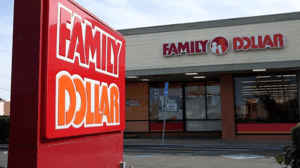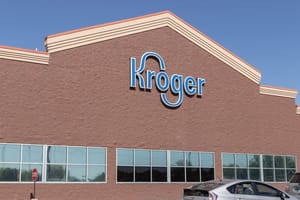NEW BIOTECH PRODUCTS VIE FOR THEIR PLACE IN THE SUN
WASHINGTON -- The Flavr Savr tomato is about to lose its monopoly on the biotechnology produce market. The U.S. Food and Drug Administration here gave clearance to five bioengineered produce items, along with two bioengineered crop items, earlier this month. Following hearings Nov. 2 and 3, FDA ruled it was satisfied with the information presented on the genetic engineering used in three bioengineered
November 28, 1994
AMY I. STICKEL
WASHINGTON -- The Flavr Savr tomato is about to lose its monopoly on the biotechnology produce market. The U.S. Food and Drug Administration here gave clearance to five bioengineered produce items, along with two bioengineered crop items, earlier this month. Following hearings Nov. 2 and 3, FDA ruled it was satisfied with the information presented on the genetic engineering used in three bioengineered tomatoes, a virus-resistant squash and a potato resistant to the Colorado potato beetle. The products still must receive approval, known as nonregulatory status, from the U.S. Department of Agriculture, and, in some cases, the Environmental Protection Agency. Unlike the mandatory USDA approval process, the FDA clearance procedure is voluntary, and is concerned with the bioengineered gene and the science that surrounds it, rather than the plant's effect on the environment. However, FDA plans to require biotechnology companies to present their genetic engineering processes to the administration before their products arrive on retailer shelves. (See related story.)
Already, the new bioengineered foods are stirring up some controversy; Pure Food Campaign, a consumer advocacy group, promises to lead a boycott against the tomatoes.
Flavr Savr's first competitor, a tomato with a three-month shelf life, is expected to hit the market early next year. The tomato, produced by DNAP Plant Technology, Oakland, Calif., is a genetically engineered version of the premium tomato DNAP markets under the Fresh World Farms brand, according to Ellen Martin, a spokeswoman for DNAP.
Davis, Calif.-based Calgene Inc., which produces Flavr Savr, received FDA clearance in May. The Flavr Savr has a three-week shelf-life.
Martin said DNAP expected to receive USDA approval early next year. Martin said DNAP planned to test-market this spring, and was eyeing a major rollout next fall. DNAP does not want to introduce the tomato during the summer, when fresh-grown local tomatoes are more readily available to consumers, she said.
A second bioengineered tomato, produced by Monsanto Co., St. Louis, was developed not only for its extended shelf life, but because it can withstand longer travel time, according to Jim Altemus, manager of plant science communication for the company. Monsanto does not plan to have the tomato on supermarket shelves for another 18 months, Altemus said. Altemus said Monsanto realized some time ago it would not have the first genetically engineered tomato on the market, but wanted to produce a better one, through bioengineering and traditional breeding. "We want to breed a superior tomato," he said.
Monsanto is test-marketing several premium conventional tomatoes. After another year of test-marketing, Monsanto will select varieties for bioengineering and present those to the USDA for approval.
Both DNAP's and Monsanto's tomato use bioengineering to modify ethylene, the hormone that causes ripening, according to FDA. In the DNAP tomato, the gene that leads to ethylene production is essentially "turned off." Retailers and packers can ripen the tomato by applying ethylene gas. The Monsanto tomato has a reduced level of ethylene, which delays ripening.
The third tomato to win FDA approval, produced by Zeneca Plant Science, Wilmington, Del., is designed to be used in ketchup, sauces and other foods. It is not intended for the produce section, said Zeneca spokeswoman Anne Muller.
She said Zeneca had applied to the USDA for nonregulatory status and expected to hear from the department in several months. Zeneca will begin test-marketing during the next growing season, she said. Carolyn Hayworth, manager of public relations for Calgene, said she was pleased that FDA approved the three tomatoes. "We see it as a positive step," Hayworth said. Hayworth said Calgene would not change its marketing strategy to prepare for the competition. "We have a world of competition out there in the market already," she said.
The newly approved genetically altered potato, also produced by Monsanto, must get EPA and USDA approval, since it is technically an insecticide, said Altemus. The potato contains a gene that is poisonous to the Colorado potato beetle. Monsanto has already applied to the USDA for approval, he said.
The virus-resistant squash, produced by Asgrow Seed Co., Kalamazoo, Mich., has received clearance from both FDA and EPA, and Asgrow expects to receive approval from the USDA very soon, according to squash product manager and produce merchandiser Leo Zanoni.
"The seed is in the can and ready to be shipped," he said.
Zanoni said the squash, a yellow crookneck, was resistant to two major strains of viruses. DNAP's Martin said she thought the bioengineered tomato would be readily accepted by the public. Martin added that the tomato has the same texture and flavor as its conventionally grown counterpart.
She said some people were against bioengineered food in principle, but others were curious about the food, and tastings were the key to satisfying that curiosity.
"We're finding in focus groups that people are comfortable with the tomato once they taste it," she said. Martin said the controversy was stirred up by a small group of people and the media.
Pure Food Campaign, which protested the Flavr Savr tomato as well as milk treated with the growth hormone bovine somatotropin, opposes the tomatoes in principle. When Flavr Savr first appeared in supermarkets, group members stomped on the tomatoes in front of the stores.
Jeremy Rifkin, president of the Washington-based group, said Pure Food Campaign would protest the Monsanto and DNAP tomatoes.
Rifkin said there was not enough research to prove that the bioengineerd products would have no long-term negative effects.
Rifkin said Pure Food members would ask supermarket managers not to carry them. Besides the five produce products, FDA gave its clearance to two plants that can tolerate herbicides, a bromoxynil-resistant cotton, developed by Calgene, and a glyphosate-tolerant soybean plant, developed by Monsanto.
About the Author
You May Also Like




